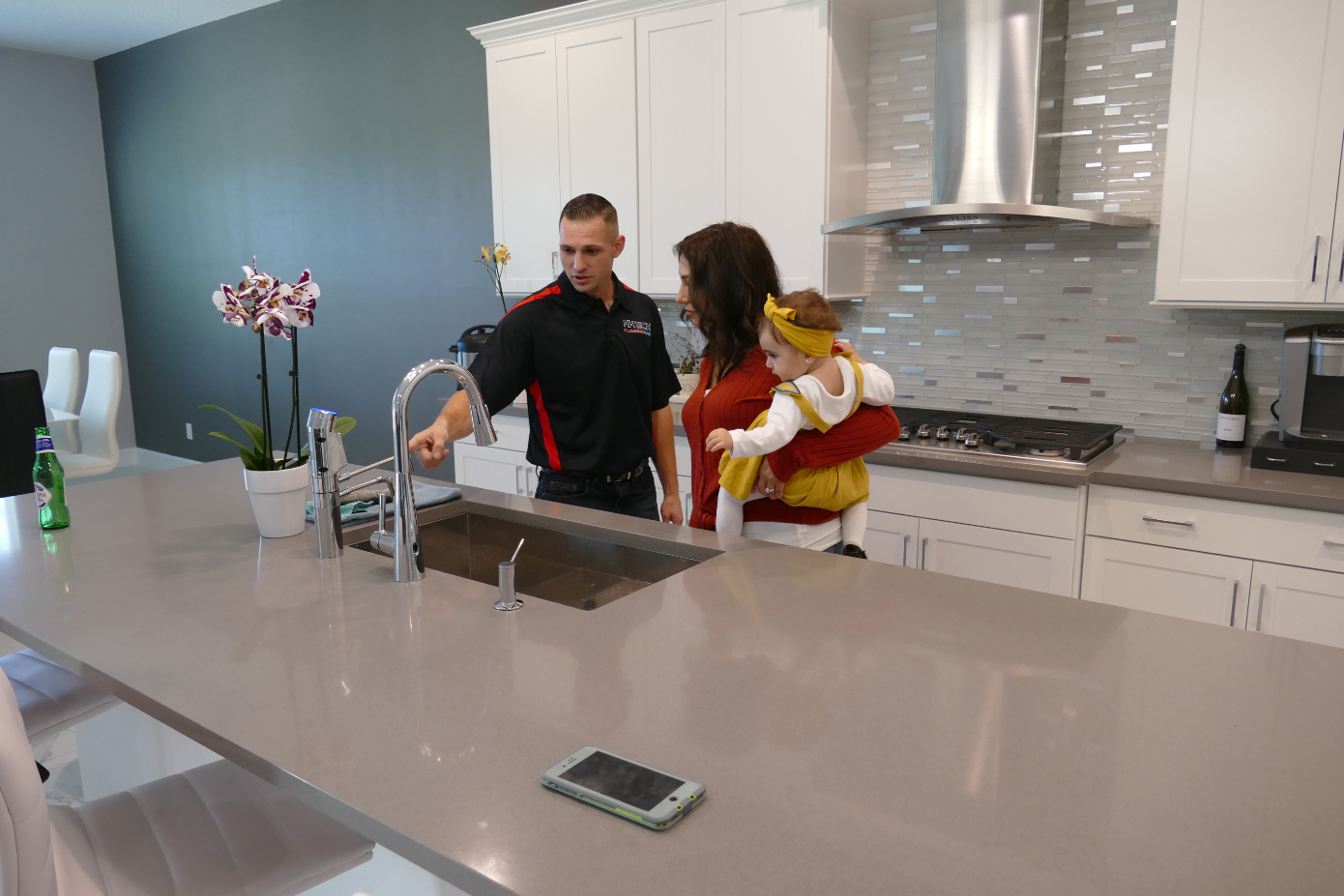When a storm is approaching, most of us think about stocking up on supplies, securing outdoor furniture and boarding up windows. But one area often gets overlooked: your home’s plumbing system.
Storms – especially in hurricane or heavy rain prone areas – can put a lot of stress on your plumbing infrastructure. From sewer backups and flooding to damaged pipes and contaminated water, the impact of a storm can be costly and inconvenient. But with some prep work, you can minimize the risk and protect your home.
In this guide we’ll cover the plumbing precautions to take before a storm hits so your system is ready for the worst.
1. Check and Clear Your Drains
One of the most common problems during and after a storm is water backup due to clogged drains. Leaves, dirt and debris can block gutters, downspouts and storm drains causing water to pool around your foundation and seep into your home.
What to do:
- Clean out gutters and downspouts so water flows away from your property.
- Check any yard or driveway drains and remove debris.
- Use a garden hose to test water flow through these drains.
- Clear storm grates in the street near your home if they’re blocked with leaves or trash.
Proper drainage reduces the chance of flooding and takes pressure off your interior plumbing system.
2. Shut Off the Main Water Supply (If Necessary)
In severe storm conditions like hurricanes or flash floods it’s often a good idea to shut off your home’s main water supply. This prevents contaminated water from entering your plumbing system and reduces the risk of burst pipes or leaks.
How to do it:
- Find your home’s main water shut-off valve (usually near the water meter or where the water line enters your home).
- Turn it clockwise until it stops.
- Label it and make sure all household members know where it is.
Shutting off your water also prevents your plumbing from becoming a path for stormwater or sewage to back up into your home.
3. Secure Your Water Heater
Your water heater is an important appliance that can be vulnerable during a storm. Floodwaters can damage the unit and power surges or outages can disrupt function or make it dangerous.
To protect it:
- Elevate your water heater if you live in a flood prone area.* Consider installing a water heater strap to prevent tipping or movement.
- If evacuation is recommended, shut off the gas or electricity to the unit.
Also, a tank-style water heater can be a backup water source in an emergency. Once the main water valve is shut off, it’s a clean and safe reservoir.
4. Install a Backwater Valve
Heavy rain can overwhelm municipal sewer systems, pushing raw sewage back through the pipes and into homes. A backwater valve is a one-way device installed on your sewer line that prevents this from happening.
Benefits:
- Stops sewage from backing up into toilets, tubs and drains.
- Meets code in some flood prone areas.
- Gives you peace of mind during long rainstorms or hurricanes.
If you have a basement or live in a low lying area, this small investment could save you thousands in repairs.
5. Check Sump Pump and Battery Backup
A sump pump is your home’s first line of defense against water intrusion, especially in basements or crawl spaces. But a storm related power outage can render it useless without a battery backup.
What to do:
- Test your sump pump by pouring water into the pit to make sure it turns on.
- Clear out any debris that could block the float switch or discharge line.
- Check the battery backup system to make sure it’s charged.
- Consider a water powered backup pump if you live in a high risk flood zone.
Also, check the discharge pipe to make sure it’s directing water away from your home’s foundation.
6. Seal Basement Plumbing Fixtures
Basement toilets, sinks and floor drains are especially prone to storm related backups. Sealing them properly can prevent unwanted water or sewage from entering during heavy rain.
What to do:
- Apply waterproof caulk or sealant around the base of toilets and fixtures.
- Use temporary drain plugs for floor drains during storms.
- Install check valves on basement fixtures to stop backflow.
These are simple but effective at preventing sudden and unsanitary flooding in lower levels of your home.
7. Disconnect Outdoor Hoses and Shut Off Irrigation
Before the storm arrives, disconnect all outdoor hoses and shut off any irrigation systems. These exposed plumbing elements are prone to damage and can add to water pressure inside the home.
What to do:
- Turn off the water supply to outdoor spigots.* Store garden hoses indoors.
- Drain any remaining water from hose bibs and irrigation lines.
This also reduces the chance of leaks or burst pipes from water left under pressure.
8. Check Exposed Pipes and Insulate If Needed
While freezing temperatures may not be a concern in summer storms, sudden temperature drops and exposure to high winds can weaken vulnerable plumbing.
Tips:
- Check all exposed pipes around your home, especially near the exterior.
- Insulate pipes with foam covers if they’re in garages, crawl spaces or attics.
- Fix any leaks or visible damage now.
These will help prevent water damage and long term pipe failure after the storm.
9. Stock Up on Water
If your plumbing is compromised during a storm, having clean water on hand is essential for drinking, cooking and sanitation.
Water prep:
- Fill bathtubs, buckets and clean containers before the storm.
- Freeze water bottles to keep food cold and as backup drinking water.
- Store at least one gallon per person per day for three days.
It’s always better to have too much than too little when it comes to clean water in emergencies.
Conclusion
Storms can hit fast, but taking a few plumbing precautions beforehand can save a lot of stress and damage. From securing your sump pump and water heater to checking drains and valves, these simple steps give you peace of mind when the weather turns dark.
Don’t wait until the forecast looks bad. Prepare your plumbing system now and you’ll be better equipped to protect your home, your comfort and your family.

